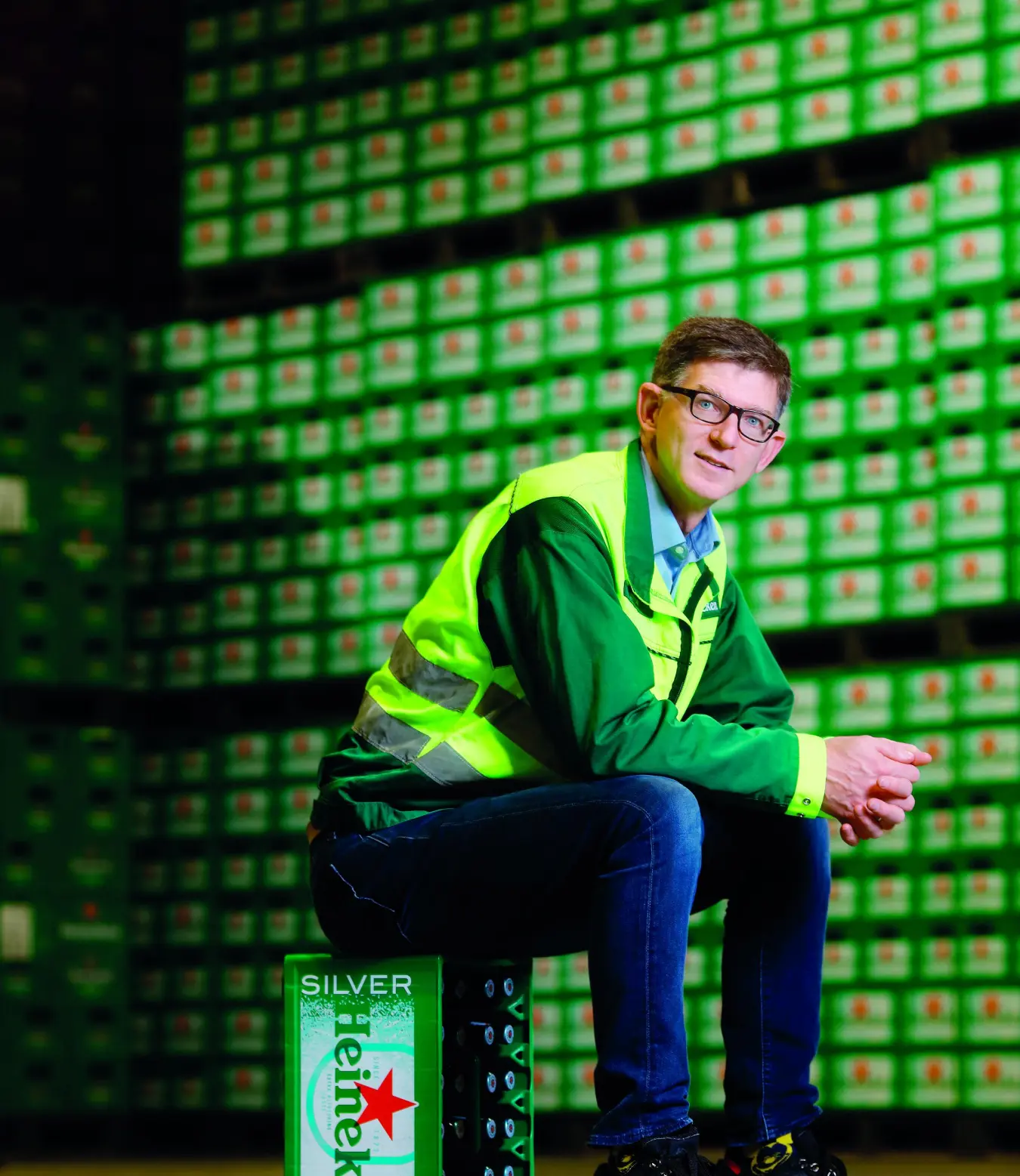Text Agaath Diemel
“A wonderful time, on a very different campus”, is how Jan-Maarten Geertman recalls his years in Delft. In 1994, the Central Library was at Raam 180 and the chemical engineering student attended lectures in the Yellow Chemistry building at Julianalaan 136. For his PhD research, he crossed the road to the Red Chemistry building. He still regularly visits campus, partly in his capacity as chair of the Biotech Academy Delft Foundation, which offers postgraduate education from the biotechnology department. Geertman had little hesitation in opting for biotechnology. “I found chemistry rather dull”, he admits. “Working with living beings is far more complex.” These are mostly species of yeast, single-cell organisms that have been playing an important role in biotechnology at Delft for well over a century. “Yeast is capable of making all kinds of products from sugars, including alcohol. For my PhD, I researched fermentation processes in order to make a variety of raw materials for industry.” That research was already focusing on a “more sustainable future with the help of microorganisms.”
Clove scent
Later, at logen Corporation in Canada, Geertman was in charge of research into making bioethanol. Instead of obtaining different end-products, this involved processing different starting products. “We attempted to increase the tolerance
of the yeast organism to a sugar soup containing all kinds of wood sugars, such as xylose or arabinose from agricultural waste and maize and wheat straw.” It proved a success, because logen is now producing biofuels in Brazil on a commercial scale. Geertman has been spearheading yeast research at Heineken since 2010. “The Heineken yeast strain is responsible for properties that are very specific to our beer, such as the banana flavour and apple aroma. We wanted to understand the link between the DNA and that physiological property of the yeast”, he explains. To do this, his department collaborated closely with TU Delft, initially to unravel the DNA and later to predict the physiological and genetic links using modelling. “Some great things resulted from that. We now know that the aroma of cloves in white beer is due to a minor mutation that happened in the yeast DNA centuries ago.”
Less water
“We’ve applied the knowledge of yeast genetics to develop natural methods for evaluating whether industrial yeast strains possess a certain desired characteristic that we then develop further”, explains Geertman. Adapting the beer yeast can affect the taste, but also the efficiency of production. “In the past, it was possible to add 11-12% sugar – originating from malt – to the wort (the mash that forms the basis for the beer), but with the current yeast strains that’s now 18-20%. For the product, it doesn’t matter whether you add that water at the start or the end.” Less water in the process significantly reduces energy consumption and the size of equipment. Since 2022, Geertman has been leading the transition to climate-neutral beer production at all of Heineken’s 183 production sites worldwide.
Brewing beer is a very energy-intensive process. “When you brew, you dissolve ground malt in water, and the enzymes in the malt convert the starch into sugars. This is achieved by heating the liquid in stages. For the fermentation process, you have to reduce the temperature again, because fermentation itself produces heat. Before packaging, the temperature is reduced again and then increased for pasteurisation. Those changes in temperature mean that we consume a lot of energy.” Some of that energy is recaptured using traditional heat exchangers, but nowhere near enough.
Net zero
“As part of the net-zero programme, energy consumption must be reduced as much as possible by means of process improvements, such as increasing the sugar concentration. Other consumption needs to be made renewable. There are many ways of doing this, including using residual products to make biogas. It also depends on the location. In Spain, we have a contract with Engie to use solar collectors to heat water for production.” As well as the breweries, the vineyards in Egypt, the water plant in Portugal and the soft drinks factory in Bunnik will need to become net zero. This is a challenge that Geertman was born for. “Innovation is my passion. All of my work has been based on improving things and making them more efficient.” As programme manager, he is just no longer directly involved in innovation. “Of course, a lot of new technology is being developed, but what I learned as a student helps me understand it. You soon see how things work or what the problem is. Whether you studied process technology or reactor science, you have a certain way of thinking that’s still relevant. That’s the power of Delft.”

